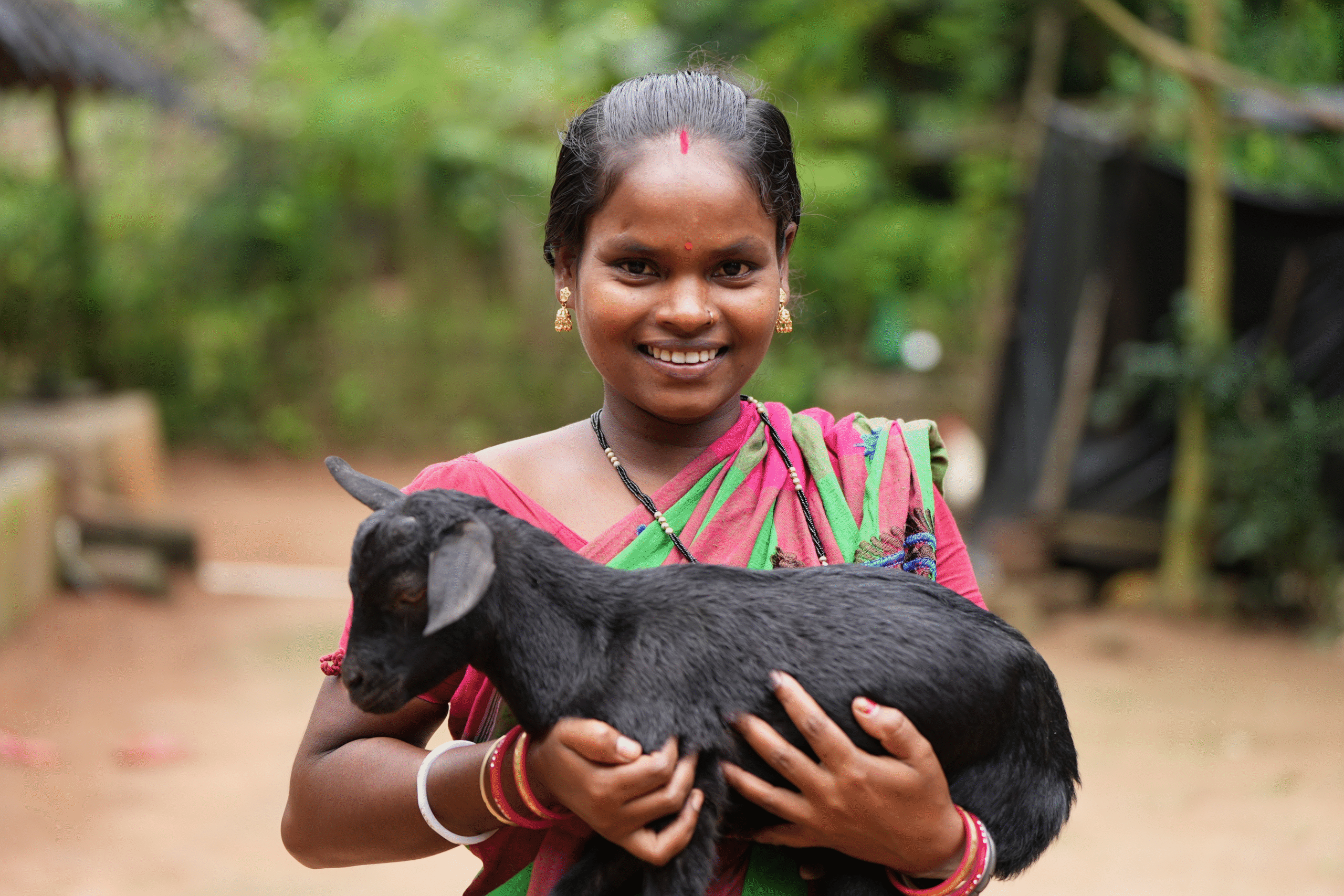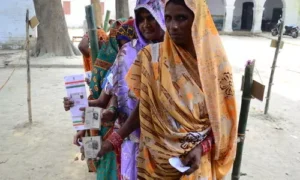Gorakhpur, Uttar Pradesh
All eyes in the brightly painted classroom are trained on the big book that Shaziya Bano is holding in her hand. The story book with colourful pictures of animals and birds, and stories and poems printed in large font, is a favourite with the 36-year-old primary school teacher’s young students aged between five and six years.
The table in the classroom of Class-I in Bhandaro Primary School in Gorakhpur district of Uttar Pradesh has heaps of mathematics tiles with large font numbers, and building blocks of all sorts of shapes and sizes.
These are the teaching aids that Shaziya Bano has been using under the National Initiative for Proficiency in Reading with Understanding and Numeracy, or NIPUN Bharat programme of the Indian government, with the aim of attaining universal foundational literacy and numeracy in all primary schools, identifying stage-wise targets and goals to be achieved by 2026-27.
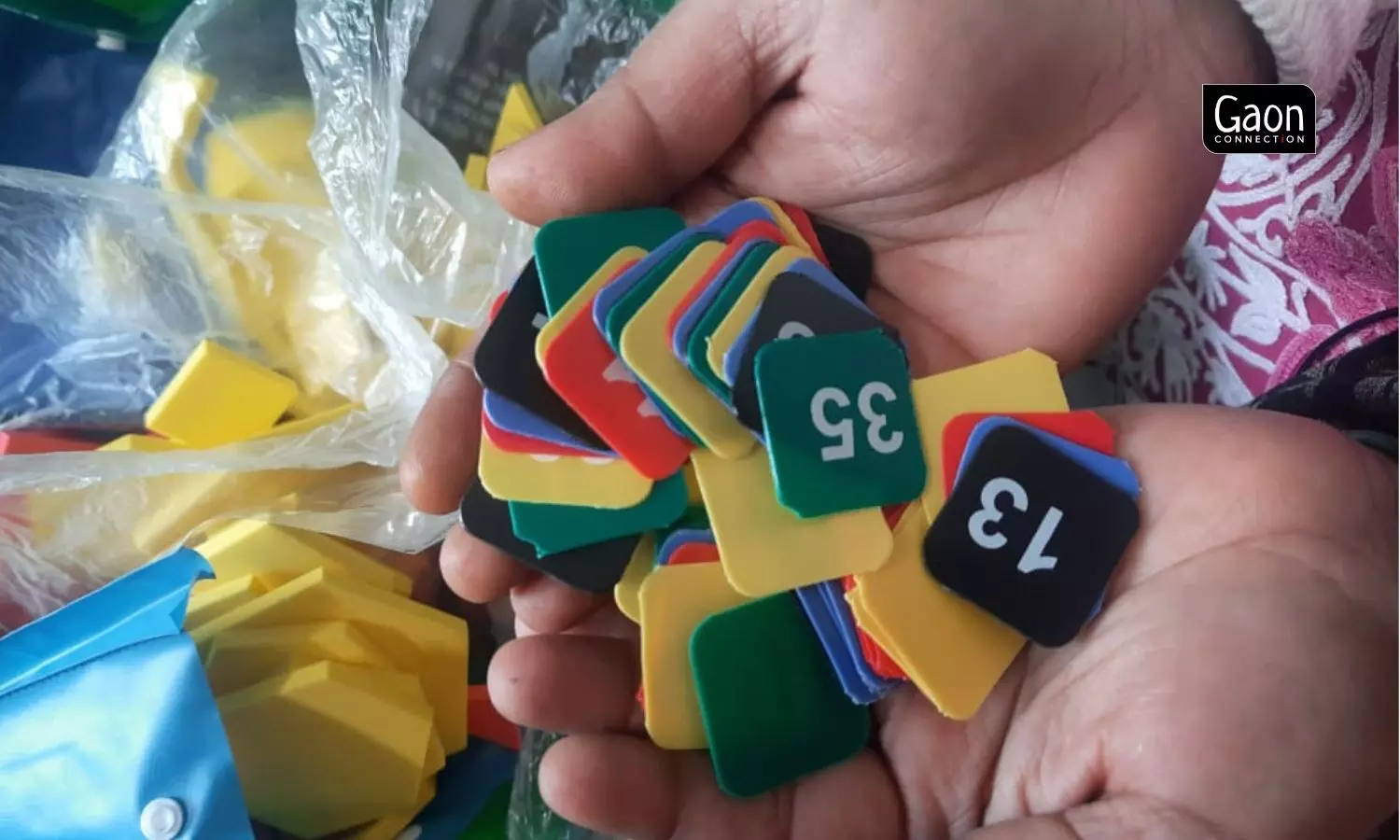
As part of the NIPUN Bharat, Shaziya Bano is equipping her students with practical understanding of letters and numericals, and not just making them learn by rote. The teaching aid materials have been provided by the education department of Uttar Pradesh government to achieve foundational education. Jungle Kauria block of Gorakhpur, where Bhandaro Primary School is situated is one of the focus blocks under NIPUN Bharat. The central government has set the goal to achieve universal FLN by 2026-27.
Also Read: ‘Nipun Samman’: Uttar Pradesh to award meritorious students from classes 1-3 on monthly basis
Foundational Literacy and Numeracy, or FLN, is the ability to read with meaning and perform basic mathematics calculations by the end of Class 3. The FLN are driven by National Educational Policy (NEP) 2020, and both strive to achieve learning outcomes rigorously.
A recent report — Foundational Literacy and Numeracy Report 2023 — by the Economic Advisory Council to the Prime Minister (EAC-PM) has assessed the progress made in this direction so far. The report is an indicator of literacy among children below ten years.
The 2023 report has ranked states and union territories based on their progress in achieving the national target of basic literacy and numeracy skills by 2026-27.
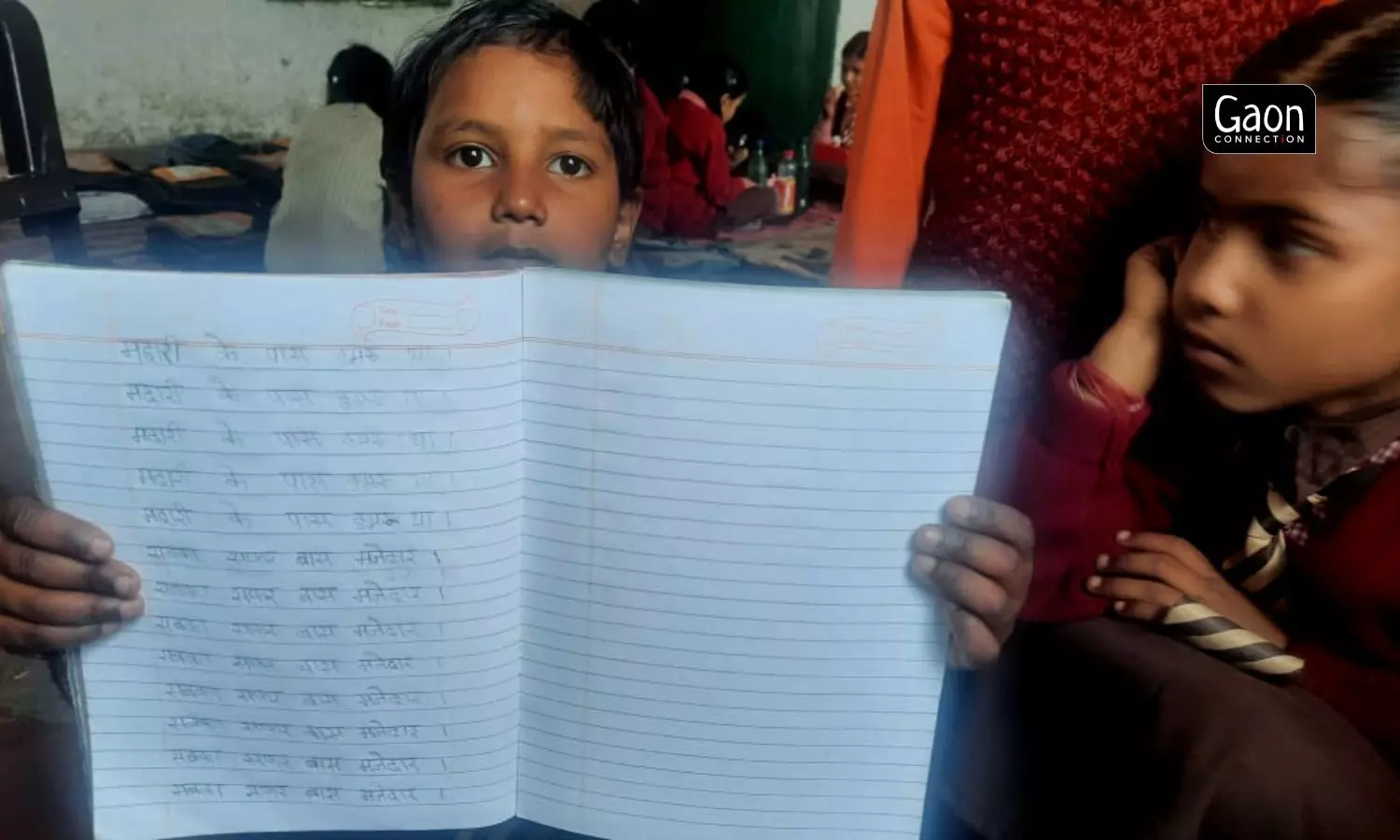
The 2023 report pins the hope on Anganwadi workers and primary teachers like Shazia Bano, to achieve its foundational learning targets.
Also Read: Rod, finger, and glove puppets come alive in a village primary school in Mandsaur, MP
FLN Ranking
The scorecard of states is based on their performance in five FLN index factors — Educational Infrastructure, Access to Education, Learning Outcomes, Governance, Basic Health.
Punjab (with a scorecard of 64.19), Kerala (58.42) and Sikkim (56.75) are the top three performing states, while the lowest scorers are Telangana (34.38), Nagaland (34.41) and Meghalaya (29.66).
Uttar Pradesh is the fourth-lowest performer amongst all states and union territories, and the worst-performer amongst the large state category — states which have a population above 10 million children, aged ten years and below — amongst a total of nine large states (see table). India’s most populous state has scored 37.46 out of 100 in the scorecard.
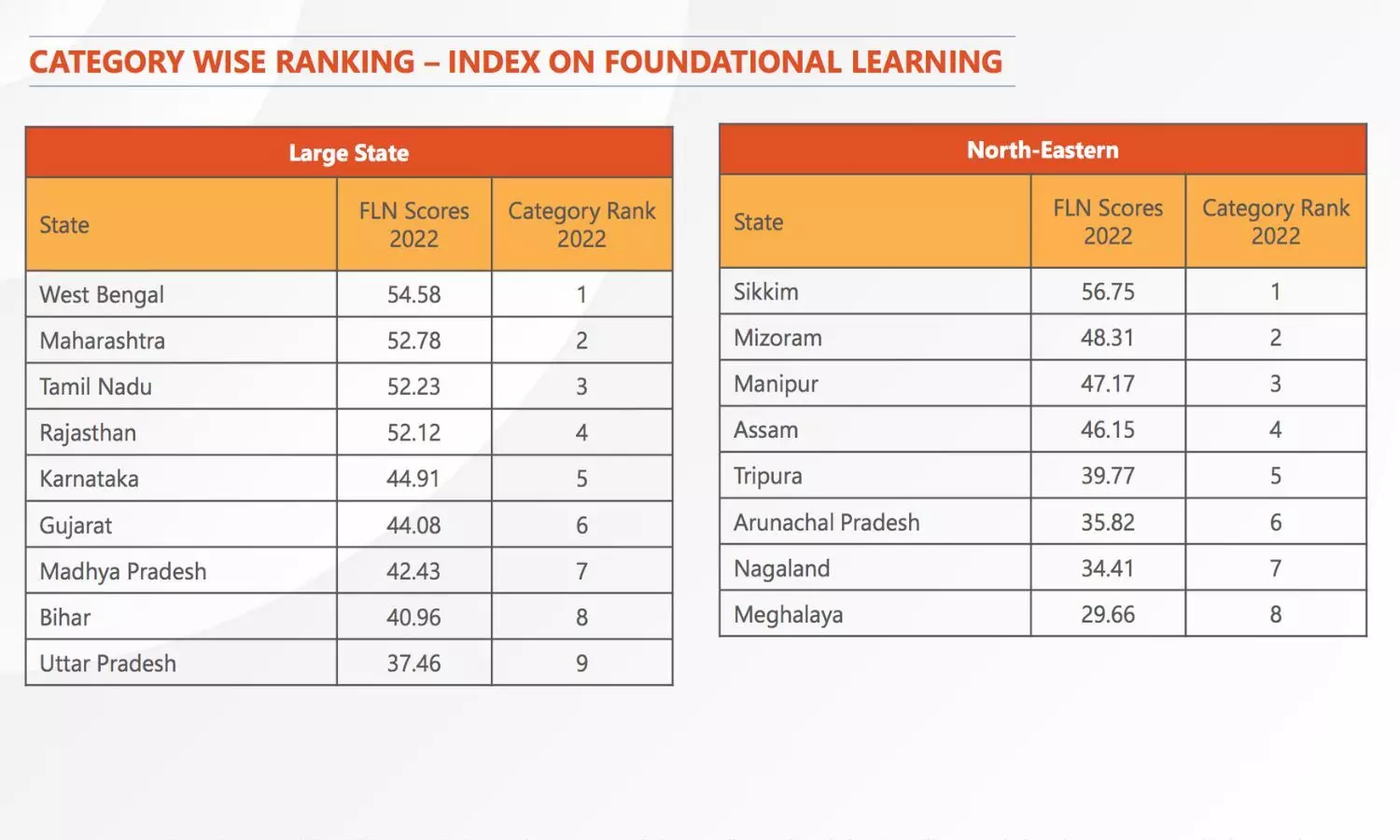
Source: Foundational Literacy and Numeracy Report 2023
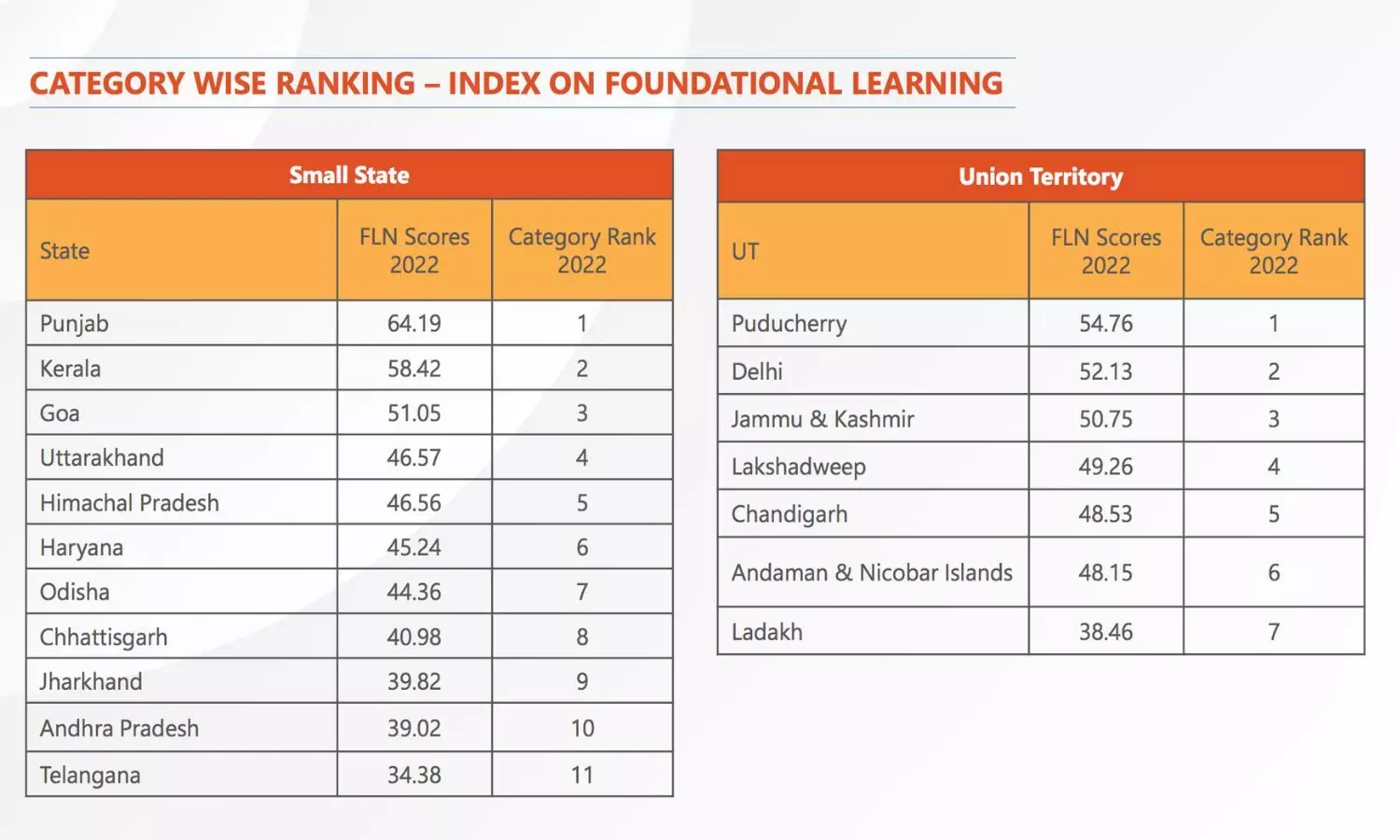
Also Read: Carbon neutral schools by the students, for the students
The FLN 2023 Report
The FLN 2023 report asserts that “a child should be able to read and write with understanding and perform operations with numbers” and that “accomplishing universal Foundational Literacy and Numeracy (FLN) is a significant element in improving the education system of India.”
Furthermore, it points out that approximately 50 per cent of the children in India lack foundational learning and find it difficult to grasp the teaching by the time they reach grade five.
The report draws a strong link between the poor foundational learning outcomes of children and absence of teaching materials in their home language. It estimated that 25 per cent of primary school children in India face a moderate to severe learning disadvantage as a consequence, especially the ones belonging to disadvantaged groups.
Also Read: Aavishkaar is helping teachers and educators fall in love with maths and science
FLN 2023 is based on the data collected under the Foundational Learning Study launched in September 2022. Under the Foundational Learning Study, 86,000 Grade 3 students were assessed in 20 different languages across 10,000 schools in the country. Conducted by the Ministry of Education, National Council of Educational Research and Training (NCERT), and supported by UNICEF — the study was to record the performance of Grade 3 students.
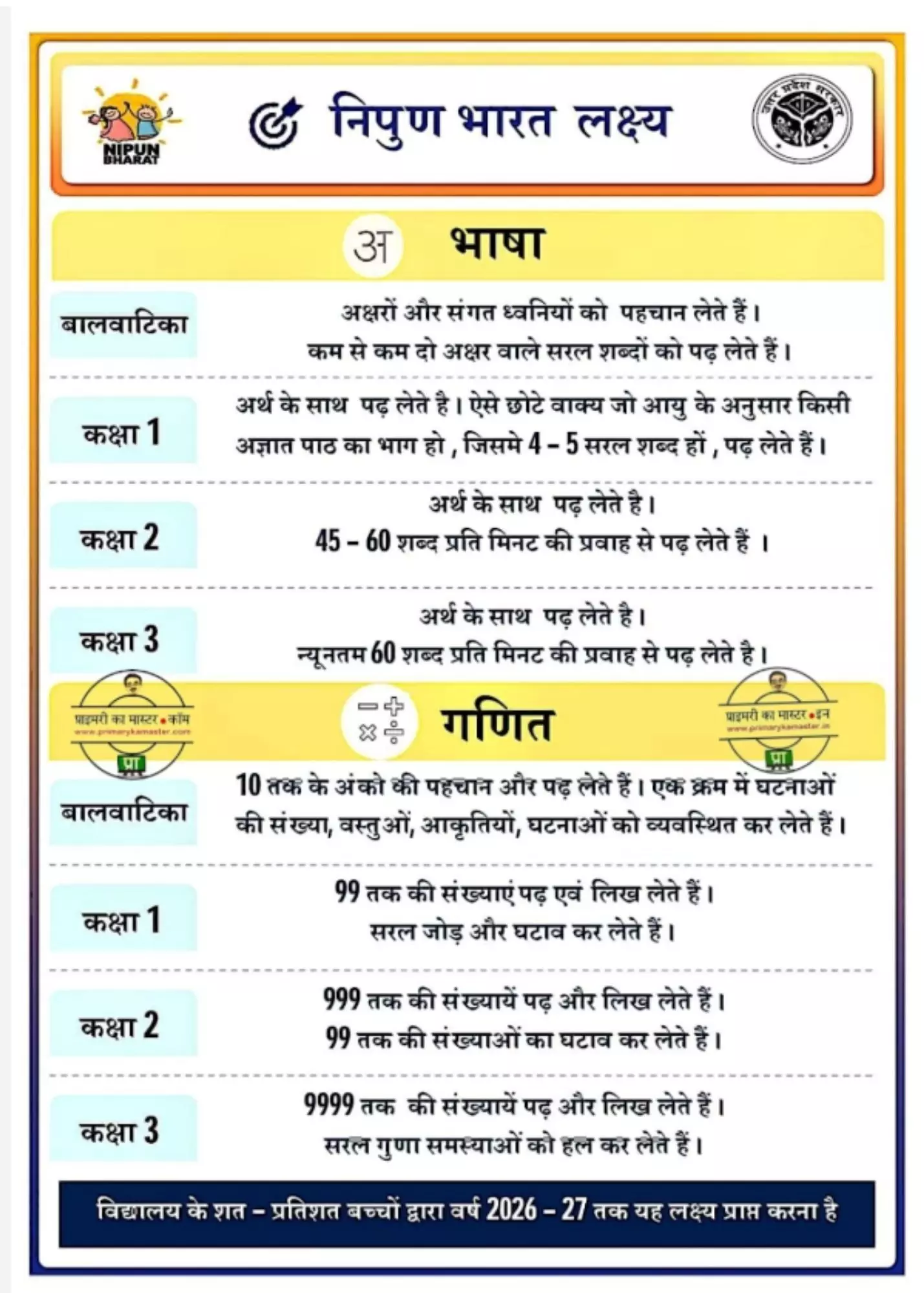
According to the FLN 2023 report, Punjabi language was the best performer with 51 per cent of the students exceeding global proficiency level, Tamil being the lowest performer with only nine per cent students exceeding global proficiency level.
Furthermore, it establishes that in numeracy fluency, only 42 per cent of the students surveyed across India meet the global minimum proficiency. Another concerning aspect it talks about is the poor performance of girls over boys in terms of numeracy.
Foundational education and nutrition
Interestingly, FLN 2023 says that the foundational education is highly dependent on nutrition and health.
“Nutrition deficiency and lack of foundational learning during an early age can result in the loss of academic and developmental abilities leading to lifelong health and economic inequalities,” it noted.
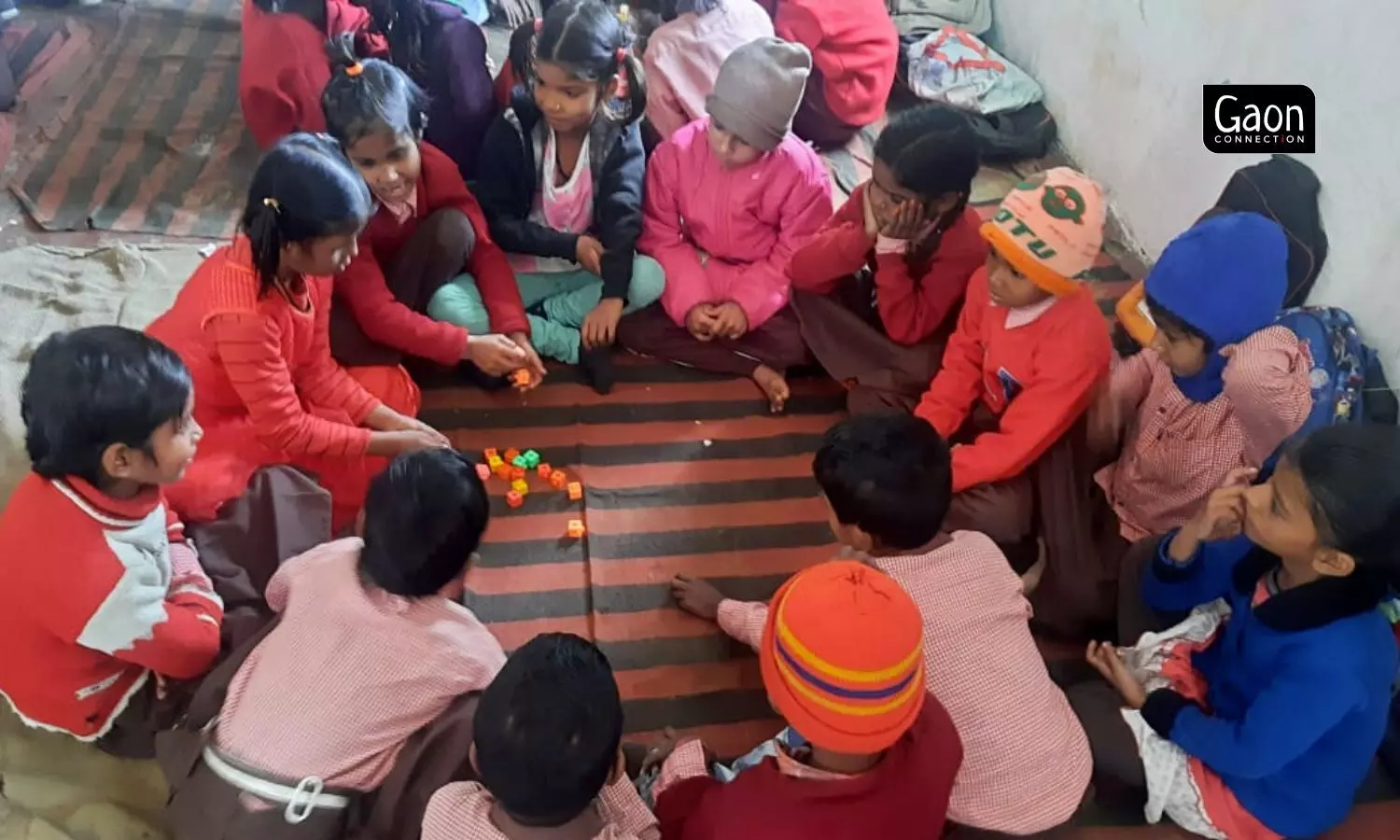
Shaziya Bano of Bhandaro primary school, Gorakhpur is equipping her students with practical understanding of letters and numericals.
The report observed that learning outcomes in India remain low and pins the hope on Anganwadi workers of 13.63 lakh operational Anganwadi centres to provide nutrition and pre-primary educational skills to the children below the age of five; and primary teachers like Shazia Bano.
“Teachers are crucial to the success of the mission, and special emphasis will be given to the capacity building of teachers… where the learner learns in a cheerful manner and grasps the essential knowledge,” the report read.
Also Read: ASER 2022 Observes Key Shifts in Rural Education System Pattern
Initiatives by different states
Keeping the national deadline of 2026-27 in mind, the states have declared education initiatives to attain foundational learning skills.
The Uttar Pradesh government, on July 21, 2022, held a programme called ‘UP Hai Taiyar’ — to showcase preparedness in improving foundational learning for primary level children.
Further, a district NIPUN cell has been constituted in Gorakhpur to assist the government education bodies analyse data, identify insights and define action steps for district and block officials. The deadline set for Jungle Kauria block — where Shazia Bano teaches — to achieve the NIPUN goal is December 2023, whereas for the entire Gorakhpur district, it is December 2024.
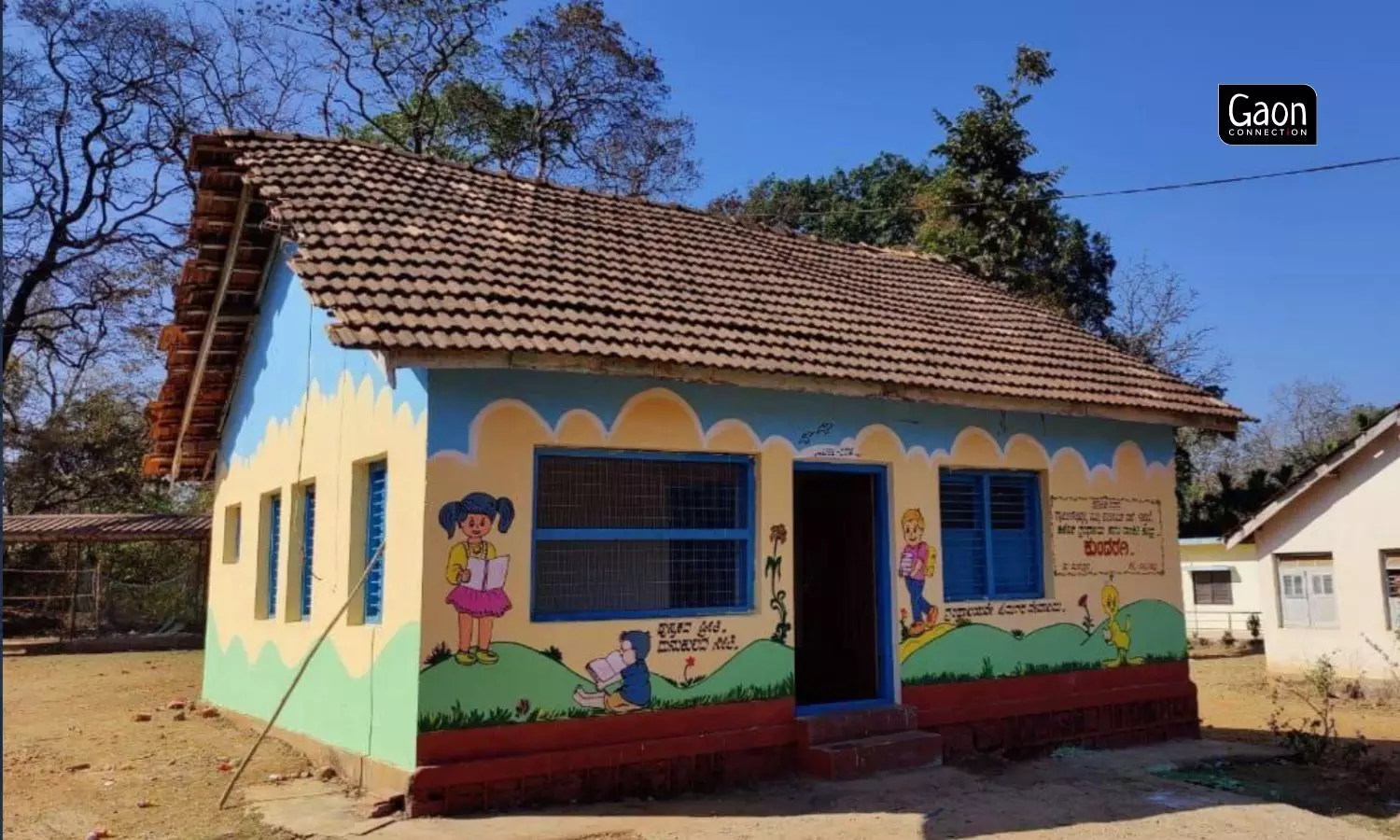
Meanwhile, Goa launched a book ‘Vidya Pravesh’ under NIPUN Bharat to improve the student’s performance in Mathematics.
‘Ennum Ezhuthum’ — launched in Tamil Nadu — focuses on addressing the learning gaps of the students in their foundational years and primary education.
Also Read: Conversations with a cab driver led to setting up of a school in Turtuk village, Ladakh
Its neighbouring southern state Karnataka initiated a holistic learning model called ‘Kalika Chetarike’, which aims to bridge the learning gaps, specifically focused on foundational learning. The state also launched Oduva Belaku, or The Light of Reading — a programme to revive rural public libraries. About 5,600 rural libraries have been set up across the state under the Department of Rural Development and Panchayati Raj.
@indiacmca My Library for a Better Me takes the library right to the children’s doorstep. CMCA mentors regularly visit children’s homes to drop off activity cards and books and encourage students to come to their Panchayat library. pic.twitter.com/vAyqCZ6faB
— Commissioner Panchayat Raj (@CommrPR) September 12, 2022
The Himalayan state, Uttarakhand became the first to initiate Bal Vatikas at Anganwadi centres as part of the National Education Policy (NEP) 2020. Bal Vatikas are the pre-primary classes being run in Anganwadi centres.
Read the full report, Foundational Literacy and Numeracy Report 2023, here.


